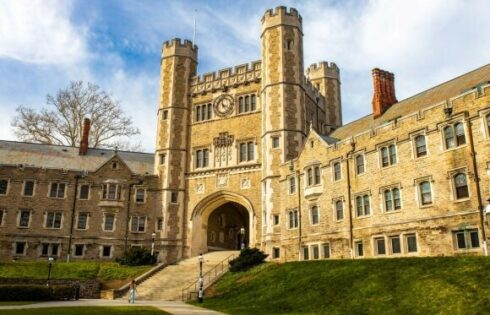
Summer program receives funding from federal grant
A federally funded Cornell University program exclusively for Native American students has been labeled “discriminatory” by a leading civil liberties lawyer.
Monica Harris is a lawyer and executive director of FAIR For All, or the Foundation Against Intolerance and Racism, which works to end racial discrimination and promote civil rights and liberties for all.
“Granting or denying any rights, privileges or benefits on the basis of race or ethnicity is inherently discriminatory, whether the beneficiaries are black, Native American, or members of any other identity group,” Harris told The College Fix in a recent interview.
The program that Harris is referring to is the Indigenous Summer Research Scholars Program at Cornell’s College of Agriculture and Life Sciences.
It is funded, in part, by a U.S. Department of Agriculture grant, which allows Cornell to “fully fund four Indigenous students … to take part in our Summer Research Scholars Program.”
The internship has undergraduate students complete an “independent research project focused on the agricultural plant or food sciences,” while receiving mentoring from faculty and graduate students in the field.
Students also receive “culturally relevant mentoring from Indigenous Cornell faculty, the Cornell American Indian and Indigenous Studies Program (AIISP) and Indigenous farmers and agricultural professionals in New York,” according to the program website.
To be eligible, students must be “a member of an Indian tribe as defined in section 4 of the Indian Self-Determination and Education Assistance Act.”
The USDA funds the program through its New Beginning for Tribal Students grant. The purpose of the grant, according to the USDA website, is to make “competitive grants to land-grant colleges and universities to provide identifiable support specifically targeted for Tribal students.”
Neither the USDA media relations office nor Program Leader Erin Riley responded to multiple email requests for comment from The Fix, asking if the program is still being funded and how it would respond to concerns about the program being discriminatory.
The Fix also contacted Cornell’s media team twice to ask about the program details and how it would respond to allegations of discrimination, but did not receive a response.
However, Harris at FAIR For All believes the program also may be unconstitutional.
Harris said the grant is a violation of the 14th Amendment, adding, “Because the New Beginning for Tribal Students specifically targets Tribal students as grant recipients and excludes students of different races or ethnicities, we believe this program is discriminatory and therefore unconstitutional.”
However, some argue that such grants and programs are necessary to help Native Americans gain equal footing with the rest of society due to historic injustices.
In the wake of President Donald Trump’s budget cuts, which have included staff at Native American education institutions, three federally recognized tribal nations filed a lawsuit to stop the administration’s action, asserting the aid is “critical.”
The lawsuit is challenging education funding cuts to Native Americans schools that have caused faculty and other personnel to lose their jobs.
However, the specific USDA program being offered through Cornell this summer still appears to be funded.
Harris at FAIR For All told The Fix her organization “believes the best way to address systemic inequities in education in Native American communities isn’t through preferential race-based grants, but through more robust funding of public schools in all socio-economically disadvantaged communities at the K-12 level.”
“Financial assistance should be provided on the basis of class, not race or ethnicity,” Harris said. “Attacking the problem earlier not only avoids the adoption of unconstitutional, race-based policies, but also benefits students of all races who are in communities that struggle with inequality.”
MORE: DOJ probes four California colleges for race-based admissions
IMAGE CAPTION AND CREDIT: A hand holds a sapling in the forest. kenchiro168/Shutterstock
Like The College Fix on Facebook / Follow us on Twitter






Please join the conversation about our stories on Facebook, Twitter, Instagram, Reddit, MeWe, Rumble, Gab, Minds and Gettr.